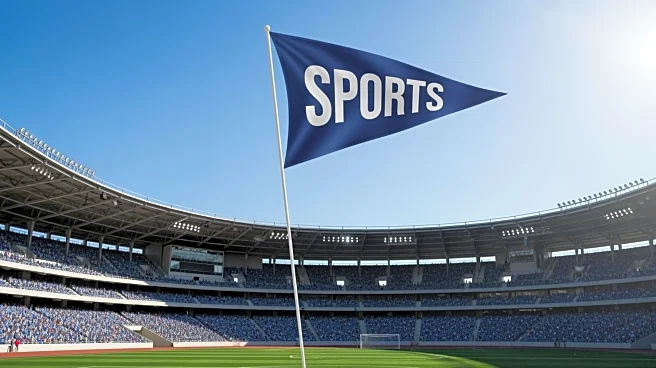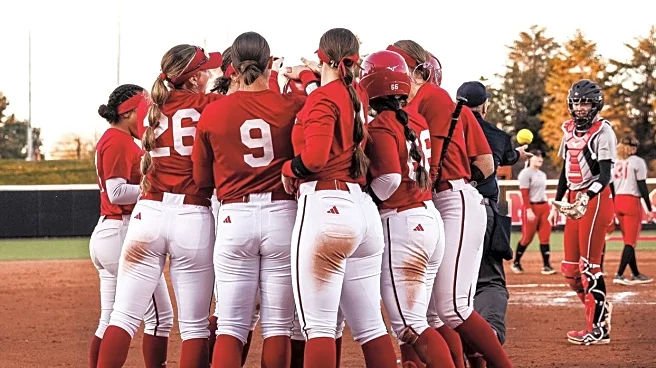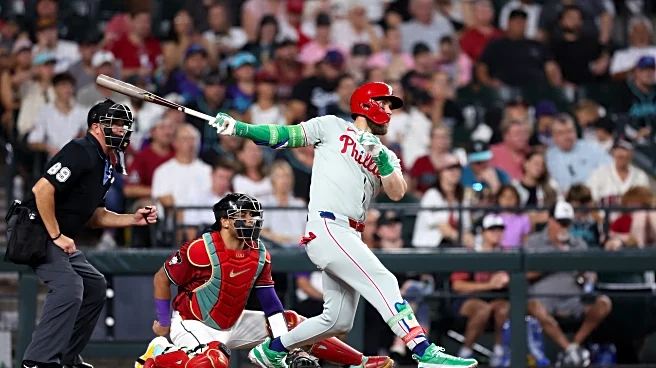What's Happening?
ESPN is continuing to offer College GameDay on the social media platform X, as announced by Pat McAfee. This decision comes amidst an ongoing contract dispute between ESPN and YouTube TV, which has resulted
in the removal of ESPN channels from the streaming service. The blackout affects popular sports programming, including college football and the NFL's Monday Night Football. ESPN communicated to its employees that negotiations with YouTube TV are ongoing, but no resolution has been reached, leaving millions of subscribers without access to ESPN and ABC content during a busy sports season.
Why It's Important?
The dispute between ESPN and YouTube TV is significant as it impacts a large number of sports fans who rely on streaming services for access to live sports events. With YouTube TV's subscriber base nearing 10 million, the absence of ESPN's channels could lead to dissatisfaction and potential loss of subscribers for the service. The situation highlights the challenges in negotiating carriage agreements between content providers and streaming platforms, which can affect consumer access to popular programming. The ongoing blackout may also influence how sports fans consume content, potentially driving them to alternative platforms or methods to watch their favorite games.
What's Next?
As negotiations continue, both ESPN and YouTube TV are under pressure to reach an agreement that restores the channels to the streaming service. The longer the dispute persists, the more likely it is that subscribers will seek other options for accessing sports content. ESPN's decision to offer College GameDay on X suggests a temporary workaround to maintain viewer engagement. Stakeholders, including sports leagues and advertisers, may also push for a resolution to ensure their content reaches the widest possible audience. The outcome of these negotiations could set a precedent for future carriage agreements in the streaming industry.
Beyond the Headlines
The dispute raises broader questions about the future of sports broadcasting and the role of streaming services in delivering live content. As traditional cable subscriptions decline, streaming platforms are becoming increasingly important for sports networks. The situation underscores the need for flexible and fair agreements that balance the interests of content providers, streaming services, and consumers. Additionally, the reliance on social media platforms for content distribution during disputes may signal a shift in how networks engage with audiences, potentially leading to new models for sports broadcasting.










